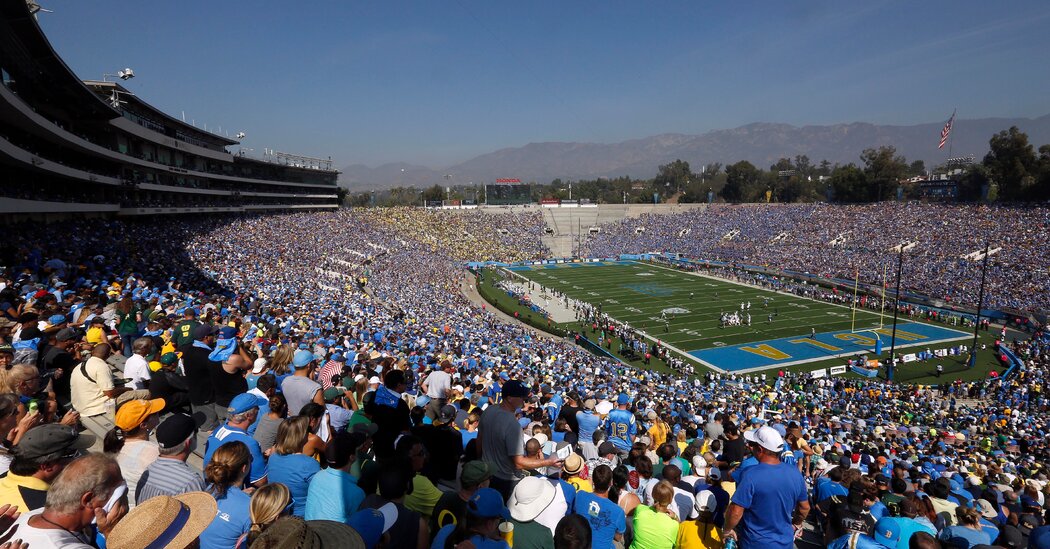
In recent years, as the Pac-12’s fortunes have waned in football — and as the league was hamstrung by a television deal that pays its schools tens of millions of dollars less per year than the Big Ten’s contract — schools like Alabama, Ohio State, Georgia and Clemson have regularly mined Southern California for elite talent.
Beyond football and men’s basketball, U.C.L.A. and U.S.C. are forces in the so-called Olympic sports. U.S.C., for instance, has won national championships in beach volleyball, women’s outdoor track and field and men’s tennis in the last decade. For its part, U.C.L.A. has won recent titles in baseball, beach volleyball, women’s gymnastics, women’s soccer, softball and women’s tennis. Both schools have also won titles in water polo, which is not a Pac-12-sponsored sport for men or women.
Overshadowed by the potential financial windfall is the increased burden placed on athletes, be they football players or distance runners, who will regularly travel to make round trips from Los Angeles to far-flung campuses in State College, Pa.; New Brunswick, N.J.; and College Park, Md., for competition.
The deal could lift a shadow from the tenure of Kevin Warren, the Big Ten commissioner since 2019, who drew criticism in 2020 when his league initially decided not to play the fall football season because of the pandemic. Although the conference ultimately reversed its decision and staged a fraction of the games it had planned, the episode has followed Warren since. (The Pac-12, under Larry Scott, also canceled and revived its 2020 football season.)
At the same time, the departures of U.S.C. and U.C.L.A. pose a sharp test for George Kliavkoff, who became the Pac-12 commissioner a year ago. Last August, in the wake of the decisions by Oklahoma and Texas, the league said it did not plan to expand “at this time,” in part because of “the current competitive strength and cohesiveness of our 12 universities.”




